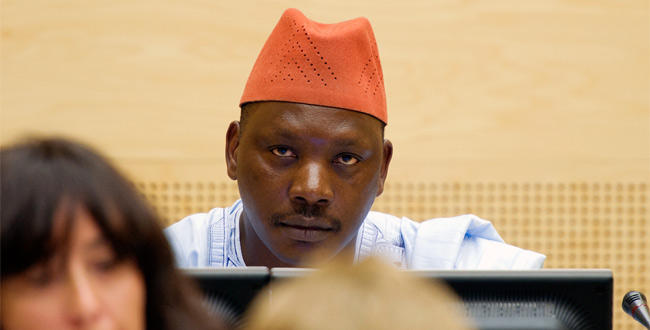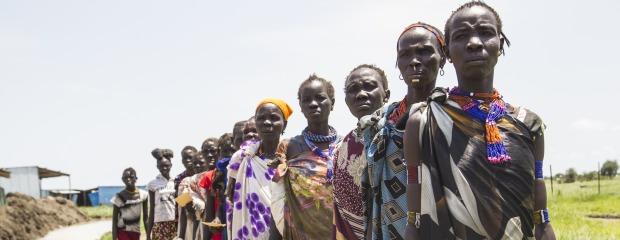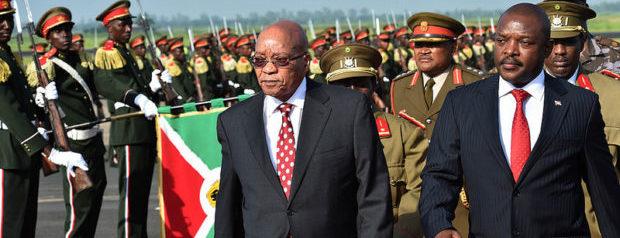Lubanga guilty verdict will go beyond Ituri, DR Congo – By William Townsend

It would be difficult to over-emphasise the importance of today’s resounding “guilty” verdict in the trial of Congolese militia leader, Thomas Lubanga, at the International Criminal Court (ICC) in The Hague. This is the first verdict to be handed down by the ICC since its inception in 2002 and the first trial that has centred on the use of child soldiers in conflict. The implications of it will stretch far beyond the scene of Lubanga’s alleged crimes in Ituri, Northeastern DRC.
Lubanga, who was captured in 2006 and put on trial in 2009, was found guilty of crimes against humanity. These charges included conscripting children as young as 9 to fight for the militarized arm (FPLC) of his Union of Congolese Patriots (UPC) movement against the rival Lendu tribe during the Congo’s second war (1998-2003). Prosecutors have never conceded there may be doubt regarding Lubanga’s guilt, noting that his militia taught “hundreds of children to kill, pillage and rape” – a “˜crime against humanity’ punishable under Article 8 of the Rome statute. But procedural blunders and concerns surrounding the unethical approach leveled against the prosecution led to calls for Lubanga’s release on two separate occasions since the trial began two-and-a-half years ago – the defence labeled the investigation as “gangrenous through and through.” Despite the unanimous ruling, Judge Adrian Fulford criticized the prosecution’s use of intermediaries, who may have influenced witnesses to give false evidence, but concluded that by “act[ing] with intent and knowledge”, Lubanga was guilty of simultaneously commanding the army, whilst remaining the political leader of UPC/FPLC. His roles saw him involved in informing and planning operations, and providing weapons, food and munitions. He actively supported recruitment initiatives and encouraged children to join the army, some of whom he used as his personal body-guard.
Meanwhile, in Ituri, attention has been fixed on the court for months with hopes and fears about the verdict widespread. Lubanga has maintained his innocence, arguing that he is a politician, not a warlord. Despite the heinous nature of his crimes, support for his liberty in Ituri is visible: the UPC, which continues life today as a political party, combined with backing from his ethnic group, the Hema, who make up a notable percentage of the population around Ituri’s capital, Bunia, all hope that he will be given a short sentence. On the one hand, expectations had been raised to the extent that there are “˜home coming’ celebrations planned, giving rise to the question, how will Lubanga’s supporters react now they haven’t received the verdict they desired?
On the other hand, the Lendu community who suffered at the hands of UPC are also on edge at the possibility of a light sentence. Rebel leaders on both sides of the conflict were charged with crimes, but Lubanga and his protected colleague, Bosco Ntaganda, have been charged only with the use of child soldiers, resulting in a sense of resentment amongst the Lendu.
Despite these tensions, Ituri is far more secure now than it was a few years ago, and many of Lubanga’s allies are no longer in Ituri. Lubanga’s former colleague Bosco Ntaganda has been “˜integrated’ into the Congolese Army (FARDC) while another former accomplice, General Kisembo, was killed by the Army in 2011. All attention today has rightfully been focused on The Hague, tomorrow it should be on Ituri.
Justice and peace are often difficult partners to reconcile in the aftermath of atrocities and war. One of Lubanga’s former accomplices in Ituri, Chief Kahwa, was controversially acquitted by a court in the DRC following a ruling that claimed he came under the protection of amnesty laws. Yet expectation surrounding this case has been high, and many Congolese people see it as an opportunity to obtain a judicial evenhandedness that has not been forthcoming in their own country, where the security sector is notoriously weak and riddled with corruption. Following today’s verdict, a 30-day window for appeals comes into effect, but if unsuccessful a sentence of life imprisonment could await. This will be of particular interest to Bosco Ntaganda, who is also wanted by the ICC, but continues to benefit from the protection of the Congolese government, as a member of the FARDC.
Despite today’s judgment, the ICC will continue to face challenges over its effectiveness. Although the Court will hope that the verdict will send a strong message to other militia groups about the seriousness of using child soldiers and that Lubanga’s later sentencing will not escape the attention of other potential indictees, concern will remain over the ICC’s ability to call before it other defendants who are protected by their government.
William Townsend is Editorial Assistant at African Arguments Online.






